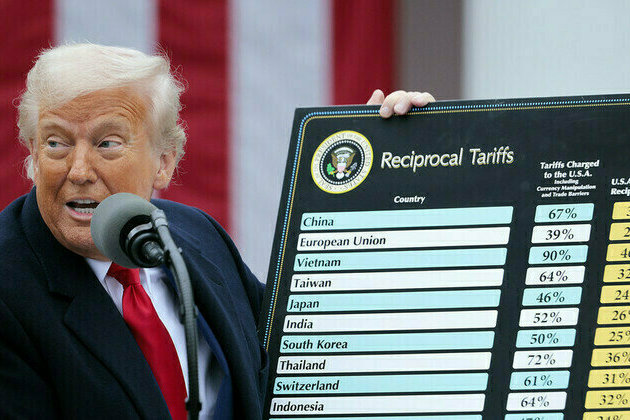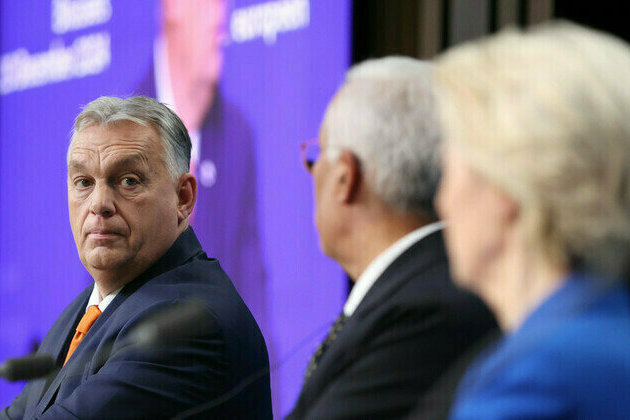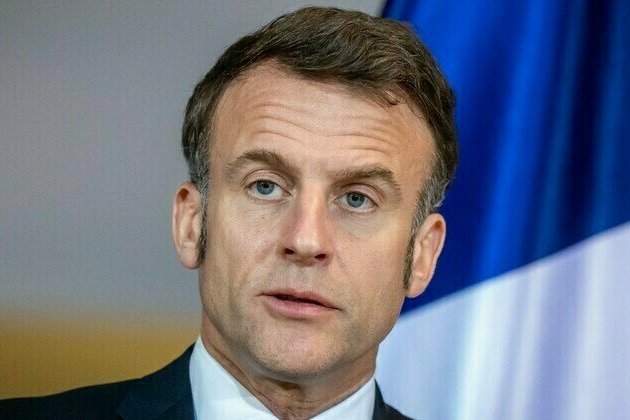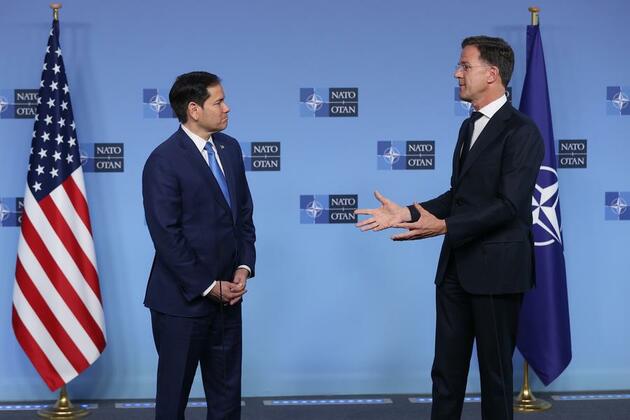BNB Provided Clarifications on Bulgarias Eurozone Accession
Novinite.com
05 Apr 2025, 14:40 GMT+10
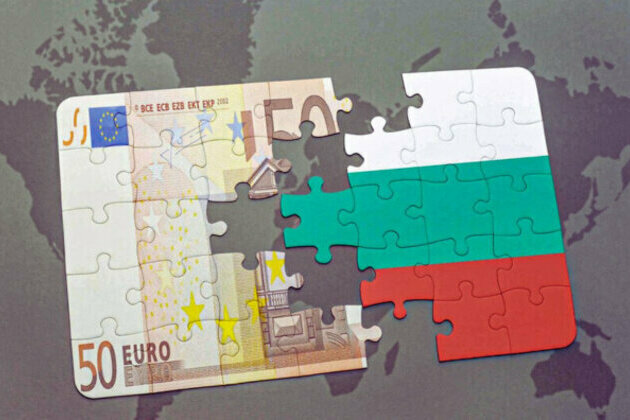
The Bulgarian National Bank (BNB) has released the second installment of its "Questions and Answers on the Euro and the Eurozone" series. The first edition covered around 100 questions, primarily focusing on consumer-related topics such as inflation, currency conversion, where to exchange money after joining the eurozone, and how products will be labeled.
The second edition addresses the structure of the eurozone, the Eurosystem, and its governance.
One key question raised at the start is more significant than concerns over the cost of coffee after joining the zone: Who determines the monetary system of the Eurosystem?
BNB's response is as follows:
"The Governing Council of the European Central Bank (ECB) is responsible for setting the monetary policy of the Eurosystem, including decisions on intermediate monetary policy objectives, key interest rates, and reserve deposits with the European System of Central Banks (ESCB), and issuing the necessary guidelines for their implementation.
The Governing Council typically meets twice a month, reviewing economic and monetary developments, and making monetary policy decisions every six weeks. At other meetings, the Council addresses issues related to the ECB's additional tasks and responsibilities. Separate meetings are held to ensure a distinction between the ECB's monetary policy functions and its supervisory duties.
Monetary policy decisions are communicated in detail during a press conference held every six weeks, led by the President of the ECB, with support from the Vice-President."
It appears that the central bank is the only institution actively conducting an informational campaign to support Bulgaria's transition to the euro and to clear up misconceptions about the country's upcoming membership in the eurozone.
Structure and Governance
TheEuropean System of Central Banks (ESCB)comprises the European Central Bank (ECB) and all EU national central banks (NCBs), with the primary objective of maintaining price stability. TheEurosystemincludes only the ECB and NCBs of euro area members and is responsible for defining and implementing monetary policy within the eurozone.
The ESCB is governed by the ECB's decision-making bodies: theGoverning Council, theExecutive Board, and theGeneral Council. Bulgaria, as an EU member state, participates in the General Council through the BNB Governor, but without voting rights in the Governing Council until euro adoption.
Monetary Policy and Voting
TheGoverning Councilformulates the monetary policy of the euro area. It holds meetings twice monthly, with monetary policy decisions taken every six weeks and explained publicly in ECB press conferences. Voting rights in the Governing Council are rotational and based on member states' economic and financial size.
ECB Capital and Contributions
Each NCB contributes to the ECB's capital based on a formula considering GDP and population. Bulgaria currently contributes 3.75% of its share to cover operational costs but will pay the full amount upon adopting the euro. As of January 2024, BNB's share in the ECB's capital is 0.9783%.
Reserve Requirements and Implications for Banks
Upon joining the eurozone,minimum reserve requirements (MRR)for Bulgarian banks will fall from 12% to 1%. This change will significantly reduce reserve obligations?estimated to decrease by BGN 15 billion?while altering the base for calculation. Reserves will no longer earn interest as per ECB rules from September 2023.
Foreign Exchange and ECB Interventions
The ECB does not actively manage the euro exchange rate but has intervened in the past during critical periods (notably in 2000 and 2011) to stabilize currency fluctuations in coordination with other central banks.
Impact on Bulgaria and the Government Deposit
Under the current currency board, ECB policy indirectly affects Bulgaria. Post-accession, Bulgaria will come under the ECB's direct monetary framework, allowing access to its instruments, including theEuropean Stability Mechanism (ESM). Government deposits at the BNB will be converted into euros without changing the underlying fiscal policy drivers.
Financial Risk Sharing and Guarantees
BNB addresses concerns regarding fiscal transfers within the eurozone by highlighting mechanisms such as theFiscal Compactand strict lending conditions of theESM, which aim to prevent burden-sharing of excessive debts from highly indebted member states without conditionality.
.
 Share
Share
 Tweet
Tweet
 Share
Share
 Flip
Flip
 Email
Email
Watch latest videos
Subscribe and Follow
Get a daily dose of Greek Herald news through our daily email, its complimentary and keeps you fully up to date with world and business news as well.
News RELEASES
Publish news of your business, community or sports group, personnel appointments, major event and more by submitting a news release to Greek Herald.
More InformationInternational Business
SectionJPMorgan sounds global recession alarm
Sweeping tariffs on the majority of US trading partners will likely push the global economy into recession, according to the investment...
Chinese travelers invigorate global tourism with visa-free, convenient trips
People stage a performance to welcome Chinese tourists at Kuala Lumpur International Airport in Kuala Lumpur, Malaysia, Jan. 29, 2025....
Economic Watch: Nasdaq falls into bear market as U.S. stocks continue plunge amid tariff concerns
A trader works on the floor of the New York Stock Exchange in New York, the United States, on April 3, 2025. (Xinhua/Liu Yanan)As escalating...
BNB Provided Clarifications on Bulgarias Eurozone Accession
The Bulgarian National Bank (BNB) has released the second installment of its Questions and Answers on the Euro and the Eurozone series....
J.P. Morgan predicts U.S. recession by year end amid tariffs; Jefferies sees limited impact on Indian exports
New Delhi [India], April 5 (ANI): J.P. Morgan has predicted that the United States economy will likely fall into a recession this year,...
Trump says his tariff policies will never change
The US president has insisted that it is a great time to get rich US President Donald Trump has defended his controversial decision...
Mediterranean
SectionEU must strip Hungary of voting rights Estonian FM
Brussels will have to return frozen assets to Moscow this summer if Budapest blocks a sanctions extension, Margus Tsahkna has said...
Thousands protest in Rome against EU rearmament
Italian Prime Minister Giorgia Meloni supports the blocs plan to allocate up to 800 billion to the military Thousands of demonstrators...
Netanyahu to meet Trump at White House for key talks on tariffs
Washington DC [US], April 6 (ANI): Israeli Prime Minister Benjamin Netanyahu is scheduled to meet with US President Donald Trump at...
Marcon may talk with Russia about ending Ukraine conflict Telegraph
The French president could become contact man for the coalition of the willing supporting Kiev, the outlet has reported French President...
Heres whats really behind Trumps tariffs and how they may backfire
The massive new levies are not primarily punitive in nature, but could be perilous if they fail to achieve their goal I am not a...
World Insights: Rubio's NATO visit exposes mounting tensions, eroding trust in transatlantic ties
North Atlantic Treaty Organization (NATO) Secretary General Mark Rutte (R) and U.S. Secretary of State Marco Rubio meet the press during...





